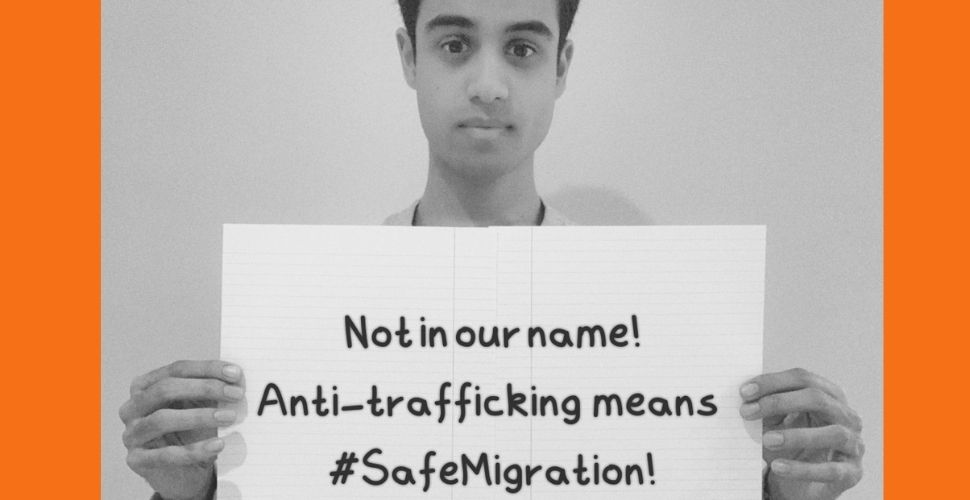Will states stick by safe migration commitments?

The UN's first International Migration Review Forum (IMRF) got underway this week, a platform to assess how member states are progressing in implementing the Global Compact for Safe, Orderly and Regular Migration (GCM) in what could be “a moment to renew our commitment to the rights of migrants.”
Writing in openDemocracy, the International Coordinator of the Global Alliance Against Traffic in Women, Bandana Pattanaik, interrogates the effectiveness of the IMRF, whether the forum will allow civil society to genuinely hold states accountable to commitments made in the GCM, or whether it will be “yet another exercise in showcasing rhetoric to hide an absence of action?”
Harmful immigration policies
Skepticism around the progress states are making with regards to protecting the human rights of migrants is not unfounded. We are seeing a disturbing pattern globally – governments are using anti-trafficking rhetoric to justify harmful immigration policies. Right now, immigration legislation, such as the Nationality and Borders Bill in the U.K., will harm trafficking survivors.
These restrictive laws make it both harder for trafficking victims to access support they are entitled to under international standards and risk increasing trafficking as options to move safely reduce. As a result of unethical immigration policies, it's now easier than ever for traffickers to exploit people made vulnerable through the systematic denial of their rights.
States must implement rights-based measures
A global UN survey found that many states had policies in place to curb irregular migration with little to no focus on protecting human rights.
The Global Coalition on Migration recently published a new report ‘Spotlight Report on Global Migration' centering migrants' perspectives and makes rights-based recommendations to states in the implementation of migration policies.
There is no data to support the notion that creating permanent regular pathways for migrants and regularising undocumented people will strain the economic or social systems of destination countries. On the contrary, such policies would go a long way in reducing livelihood insecurity, building just societies, and strengthening local economies. Destination states must let go of the false notion that migrants are a burden or threat to their countries once and for all.
The hostile nature of borders and immigration policies fails to acknowledge the humanity of migrants and undermines the rights afforded to all of us through virtue of being human. In the vacuum of these rights, modern slavery and human trafficking are allowed to flourish.
Not only are states ignoring international recommendations, they are co-opting anti-trafficking arguments to justify restrictive immigration policies that are harming migrants and trafficking survivors. This is unacceptable.
That's why Freedom United launched a new campaign this week calling on all states to pass genuine anti-trafficking immigration policies.
Add your voice to this important campaign today and let's keep up the pressure on states to act.
Chip in and help end modern slavery once and for all.
This “Eyes on Trafficking” story is reprinted from Freedom United‘s RSS feed.
ABOUT PBJ LEARNING
PBJ Learning is a leading provider of online human trafficking training, focusing on awareness and prevention education. Their interactive Human Trafficking Essentials online course is being used worldwide to educate professionals and individuals how to recognize human trafficking and how to respond to a potential victim. Their online human trafficking course is available for use on any web browser (even your mobile phone) at any time.
More stories like this can be found in your PBJ Learning Knowledge Vault.
